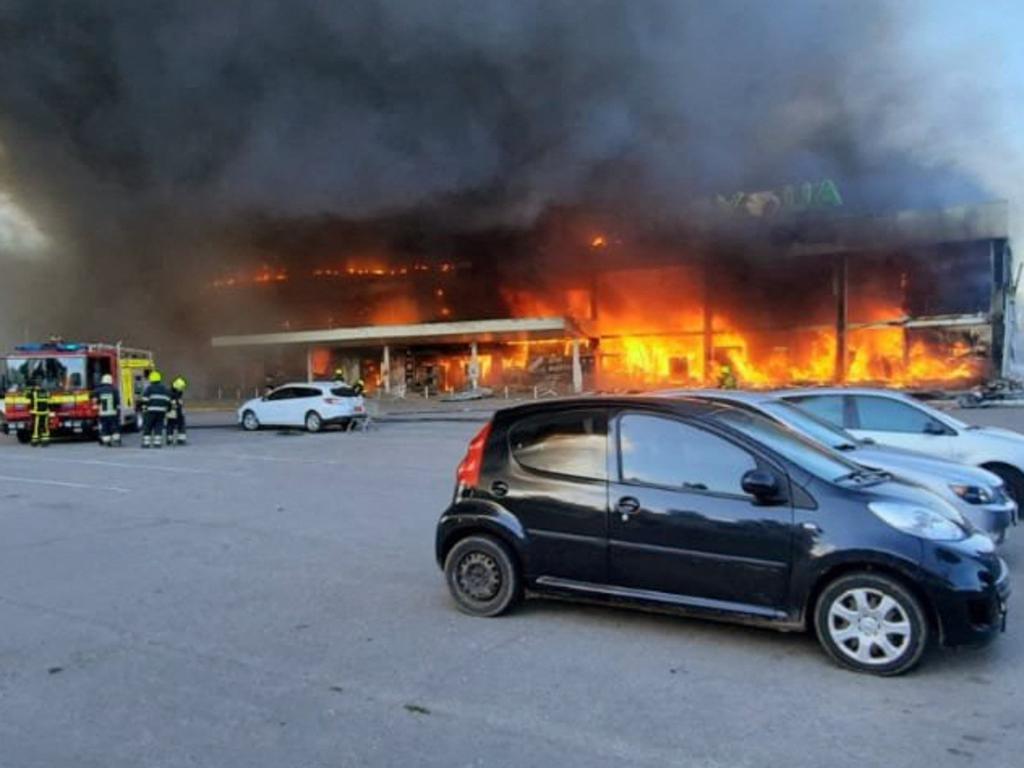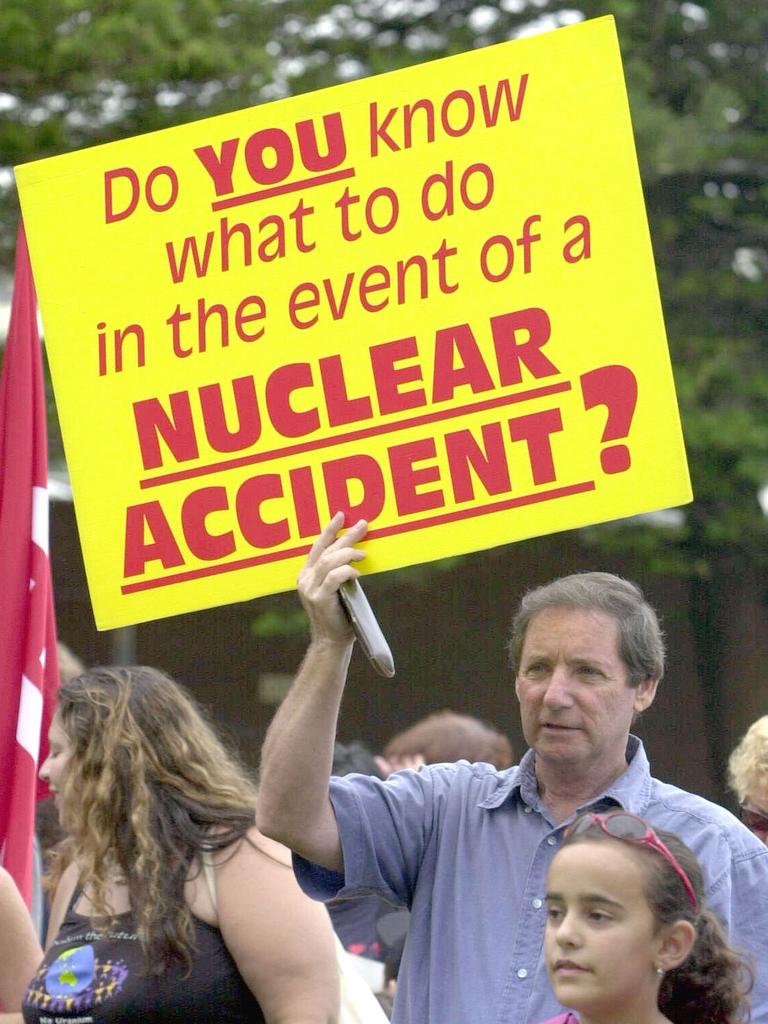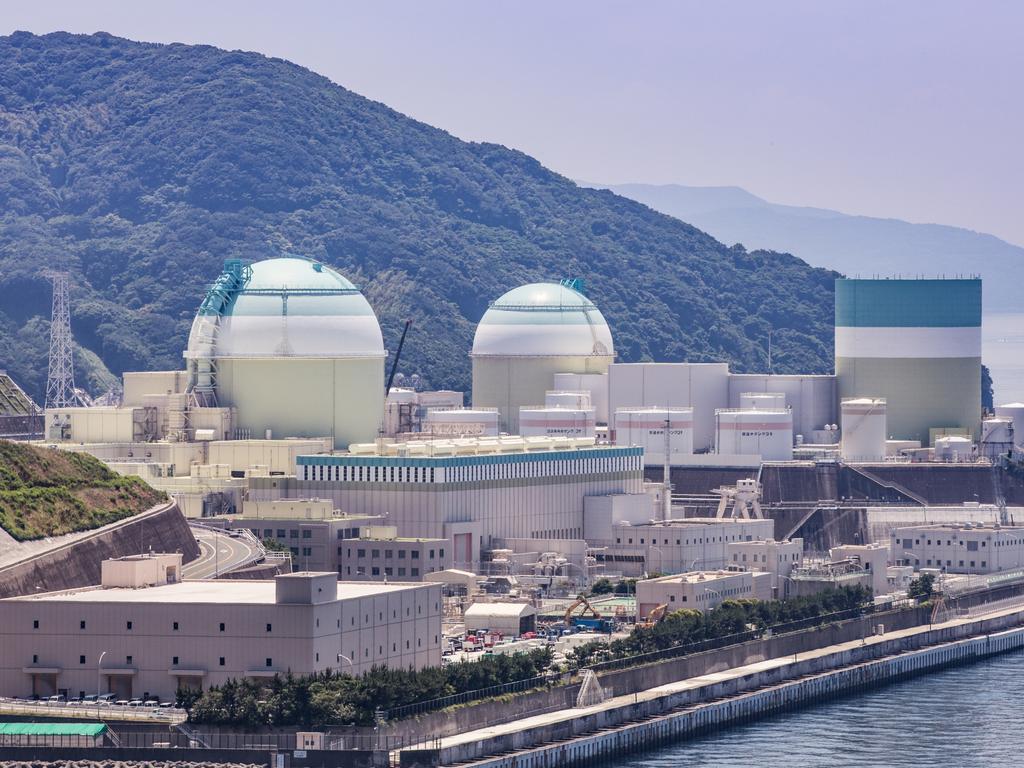Growing support for nuclear power, weapons
Shock new poll results reveal where Australians stand on nuclear power and defence spending. See what they said.
A majority of Australians favour increased spending on defence and one in three now support the acquisition of nuclear weapons, according to a new poll.
The Lowy poll, which has tracked Australian attitudes on a range of international issues for 18 years, found 70 per cent of respondents supported the acquisition of nuclear powered submarines.
The amount of respondents who said Australia should acquire nuclear weapons rose to 36 per cent (up from 10 per cent a decade ago), and 51 per cent agreed we should increase our military spending – a 20 point jump since 2019.
The shift in attitudes has been driven by alarm about Russia’s unprovoked attack on Ukraine and China’s expanding influence in the Pacific, with 75 per cent of the 2006 people surveyed saying they expect Beijing will become a military threat to Australia within the next 20 years.
While a small majority of Australians (53 per cent) told the pollsters they still feel safe about Australia’s place in the world, this was a 17 point drop from 2021.

Lowy Institute Polling Director Natasha Kassam said Australians were feeling “very anxious about growing threats in our region” and less secure in regards to the US, which has prompted us to think about “independent ways of defending ourselves, whether that is increased military spending, acquiring nuclear powered submarines, or the growing minority of Australians that see acquiring nuclear weapons as being feasible in Australia’s future”.
Dr Andrew Carr from ANU’s Strategic and Defence Studies Centre said it wasn’t long ago that nuclear-powered submarines were regarded as “a third rail” – a complete no-go zone – in Australian defence policy.
“I remember talking about this with politicians several years ago and the expectation was that this just wasn’t possible,” Dr Carr said. “I think Scott Morrison took a bet on his reading of the Australian public, and it seems to have handsomely paid off.”
Even so, there was “very little appetite” among the defence establishment for Australia to acquire nuclear weapons now, “given the ramifications for regional proliferation, and the sheer technical and financial challenges of doing so,” Dr Carr said.
“I suspect those numbers [of people supporting nuclear weapons acquisition] are probably pretty weak, but they indicate people are now open to that conversation,” he said.
He found one of the poll’s most surprising findings was that nearly two in three Australians (63 per cent) say they are comfortable about US bases on Australian soil. Forty years on from Midnight Oil’s powerful protest song US Forces, the issue does not seem to vex as it once did.

“Historically Australia has been very prickly over sovereignty,” Dr Carr said. “The US facilities at Nurrungar and Pine Gap are joint facilities – they’re not US bases in the traditional sense – and Australia’s governments have negotiated much stronger access and oversight compared to even what the Japanese and the Germans have had for US facilities. I thought it could have created a much bigger debate.”
The alliance with the US was rated important by 87 per cent of respondents – the equal highest result in the poll’s history.
But the US only placed eighth on a “feelings thermometer” which gauged how everyday Aussies feel about other nations. According to the Institute, Australians are feeling most warmly towards New Zealand, followed by Canada, the UK, Japan, France, Ukraine, Tonga, and then the US.
Australians felt exceptionally cool towards China, and positively icy towards Russia. Ninety-four per cent of respondents said they distrusted the Kremlin, while 87 per cent do not trust Beijing.
Ms Kassam said for three consecutive years of Lowy polls she had said Australians’ trust in China could not fall any further, “and for three consecutive years I have been proven incorrect”.
“What we have this year is that striking number of Australians that see China as becoming a military threat in the next two decades. We don’t see these kinds of numbers often,” she said.
MAJORITY WANT NUKE POWER BAN OVERTURNED
A majority of Australians favour overturning the ban on nuclear power, the Lowy Institute poll has revealed.
The survey of adult Australians conducted in March found a slim majority – 52 per cent – supported revoking the 1999 legislative ban on nuclear power, up from 47 per cent last year.
Growing support for the idea has been evident in the Institute’s annual poll for some time but this is the first year it has reached a majority.
Australian Nuclear Association President Dr Joanne Lackenby said with majority public support for removing the ban, “politicians should be listening”.
“It’s time to level the playing field – remove the ban and let nuclear compete on its own merits,” she said.
Exploring nuclear power should be a “no-brainer” given Australia had limited options for hydropower, Dr Lackenby said.
“We need to think beyond 2050 – climate change and our reliance on energy is here to stay,” she said.


But Climate Council CEO Amanda McKenzie disagreed, saying nuclear was “the most expensive, dangerous and least flexible form of new power”.
“It makes no sense in Australia when we have much better and cheaper alternatives,” she said.
Lowy Institute Polling Director Natahsa Kassam said the response to the question revealed an increasing interest in alternative sources of energy.
“Australians are wanting to look towards alternatives, whether that is through renewables, whether that is through nuclear power, and that I think comes at the same time as a very striking shift away from coal,” Ms Kassam said.
The poll of 2006 Australians found collapsing support for the coal industry.
Five years ago two in three survey respondents said they supported the continuation of Australia’s coal industry, Ms Kassam said, but in this year’s poll the result flipped. Now two in three Australians (65 per cent) say we should reduce coal exports, and almost as many (63 per cent) say their should be no new coal mines.

In regards to the questions about nuclear power and the future of coal, survey respondents were asked about the issues on principle, without information about the costs involved.
“You can argue endlessly about potential economic upsides and downsides,” Ms Kassam said. “We try to give very little context, just to see what people think about the issue on what they know, rather than educating them on the question.”
While overall levels of concern about climate change remained virtually unchanged from last year, the poll found overwhelming support for subsidies for renewable energy technologies (90 per cent), more ambitious emissions reduction targets for 2030 (77 per cent) and Australia hosting a UN climate conference (75 per cent).
Ms McKenzie said it was no surprise Australians wanted to back renewables.
“Australians are well aware that our country is one of the sunniest and windiest places on earth, with enough renewable resources to power the country hundreds of times over. Building large-scale wind and solar projects is the cheapest way of producing electricity, even when paired with storage,” she said.
Coal was “on the way out,” and Australia’s recent energy crisis was “fuelled by an over-reliance on expensive coal and gas and a lack of investment in renewables and storage,” Ms McKenzie said.
More Coverage
Originally published as Growing support for nuclear power, weapons







